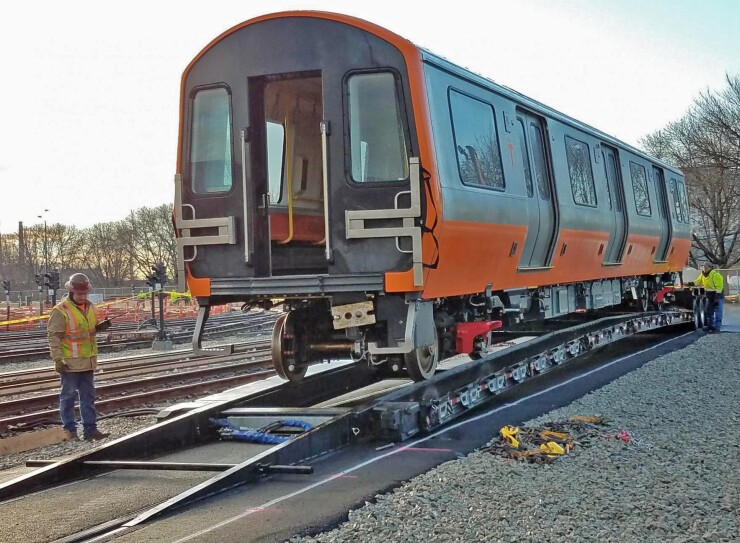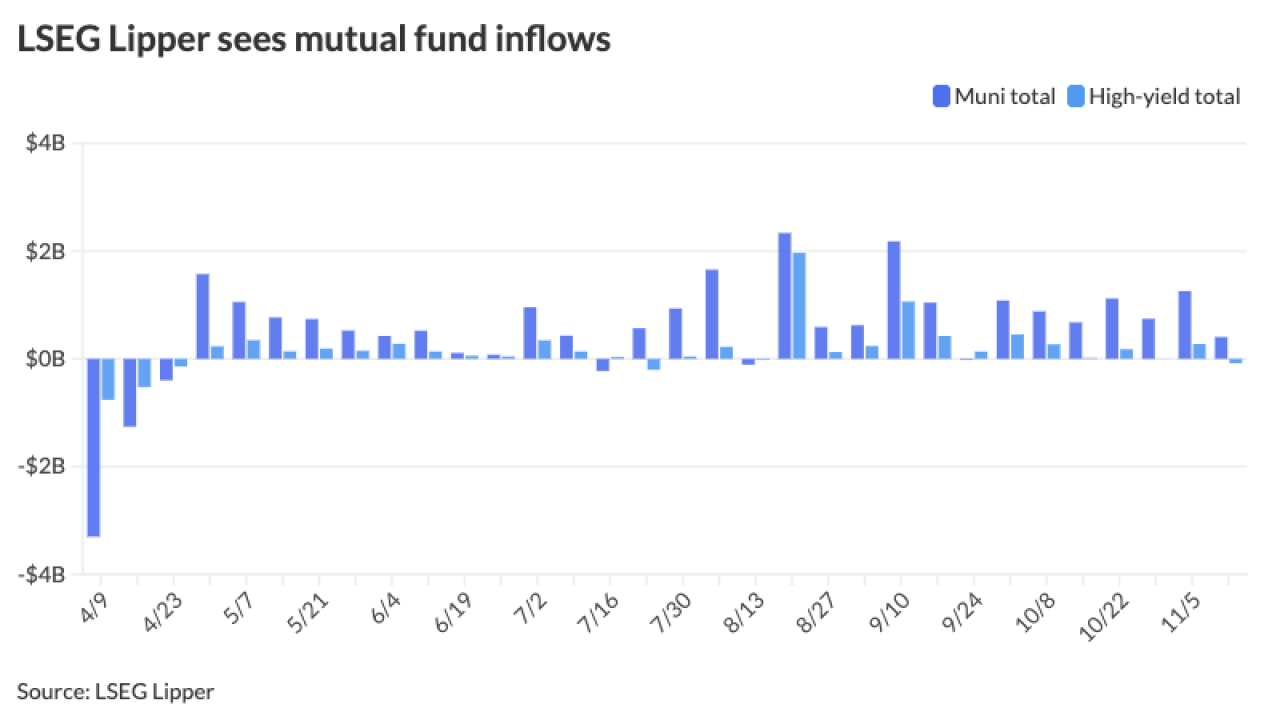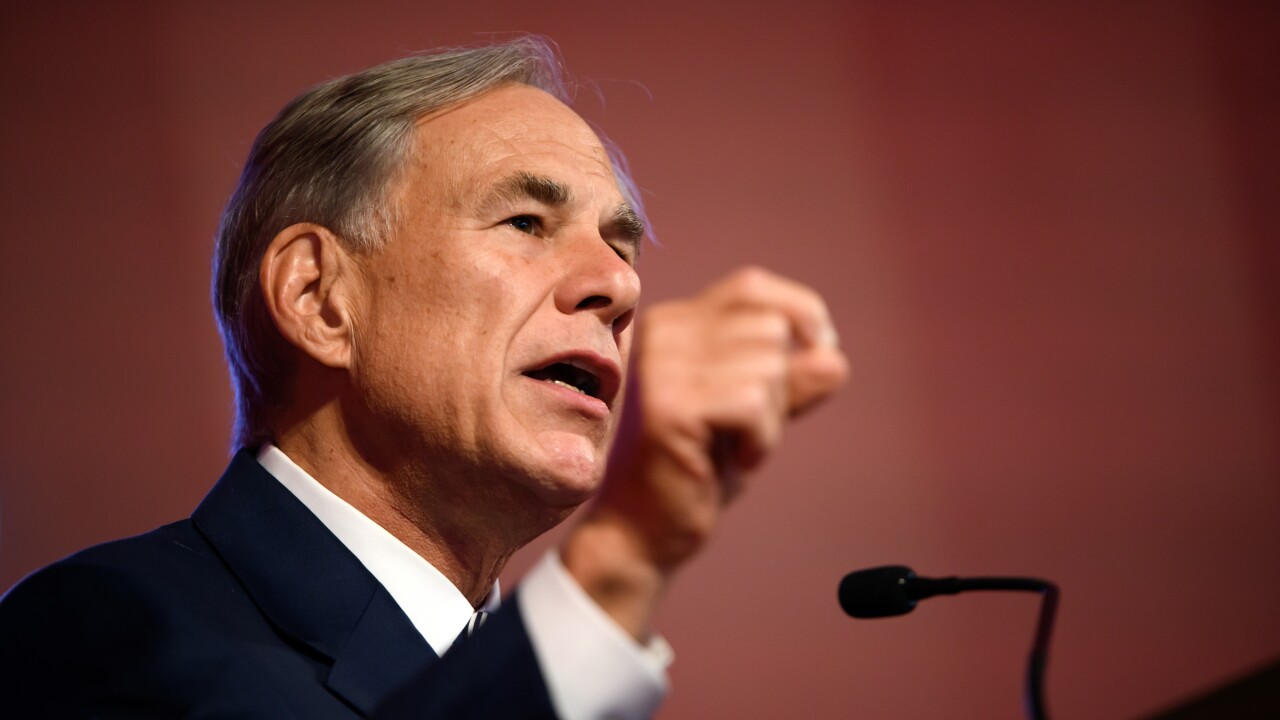
Massachusetts is set to price a transportation revenue bond deal next week to fund its rail enhancement program and refund some bonds for savings.
The commonwealth is planning an extensive transportation capital program, according to Deputy Treasurer for Debt Management Sue Perez. The upcoming deal, though, is the standard Commonwealth Transportation Fund offering that investors will recognize, funding projects that investors will recognize, she noted.
"I like being able to tell the story of what specific programs we're funding," Perez said. "Everybody [who commutes] would like to get to work faster."
Retail pricing for the nearly $500 million deal is expected Tuesday Oct. 7 and institutional pricing will be Wednesday, October 8. The underwriting syndicate will be led by J.P. Morgan. Omnicap Group serves as the municipal advisor.
The first series, $325 million, is new money. The remaining $168 million will refund a series of bonds from 2015 — coincidentally, the first series of rail enhancement program bonds. Perez said the deal team hopes to achieve savings in excess of 10% from the refunding.
Massachusetts issues CTF bonds every year in deals very similar to this one, Perez said. Last year's deal included $275 million new money bonds and $218 million refunding bonds. That deal achieved gross savings of $47 million, net present value savings of $33 million or 13.3% of refunded par.
Projects associated with this issuance include the purchase of commuter rail bi-level coaches, vehicle and infrastructure improvements for the red and orange lines, a new bridge repair and rehabilitation program, and the South Coast Rail project, which recently opened for service.
The CTF bonds have a lot of attractive features, Perez said.
"It's a good diversifier for some investors who [are seeking] something outside of the GO," she said.
Perez said the proceeds funding specific, visible projects should be a strength for the credit.
She hopes that buyers' firsthand knowledge of the rail enhancements will help the deal as well.
"We actually go into detail on what projects we're funding," Perez said. "Sometimes people relate to that."
The bonds are rated Aa1 by Moody's Ratings and AAA by S&P Global Ratings and KBRA. The S&P rating, Perez noted, is higher than the commonwealth's general obligation rating. KBRA doesn't rate the commonwealth.
The CTF's dedicated revenues are the motor fuels tax and motor vehicle registration fees. These revenues have generated more than four times the coverage of the maximum annual debt service, according to
The fuel tax revenue has historically been the more volatile of the two revenue streams, Moody's analyst Ted Hampton said. That tax's revenue has also declined by roughly 6% over the last 10 years, although it ticked up slightly in 2024.
"There's an increasing proportion of vehicles on the road that are either electric or hybrid or just get better mileage, and so that, overall, tends to weigh on motor fuel consumption," Hampton said. "Another thing that's at play is work from home. The more remote work that occurs, the less you have people in the commonwealth getting in their cars to go back and forth to work."
However, these trends have not occurred at rates extreme enough to cause concern, Hampton said.
"If, for example, electric vehicle adoption was to increase dramatically in a way that really reduced revenue from that source, that's something we monitor, and we'd look for the commonwealth to take some sort of corrective action," Hampton said. "But, we're not expecting that to happen."
There are $4.37 billion of CTF bonds outstanding. $1.67 billion of that debt is for the accelerated bridge program and $2.7 billion benefits the rail enhancement program.
In Massachusetts' fiscal 2025 budget, the state allocated $250 million of its wealth tax — known as the Fair Share Tax — to the Commonwealth Transportation Fund. The fiscal 2026 budget increased that amount to $550 million.
Earlier this year, Gov. Maura Healey announced an $8 billion, 10-year
"I think overall there are unmet infrastructure funding needs, capital investment needs, in transit, in bridges, highways, all of this that the commonwealth is really seeking to address," Hampton said. "The CTF bond program is one of their existing tools that they can use to finance those projects."
Healey's plan also included $5 billion of bonds from the fair share revenue.
"We're currently evaluating options for how these funds could be used to support the issuance of either additional bonds, subordinate bonds, or other special obligation bonds," Perez said. "So we're not using [the fair share revenue] in this one, because we still had capacity under [the Commonwealth Transportation Fund] credit, but we are evaluating how we will use those funds."
In addition to future fair share revenue bonds, the commonwealth's new bridge improvement program will eventually receive federal funding. That project will likely prompt the Treasury to once again issue grant anticipation notes, which it hasn't had cause to use in recent years, Perez said.





